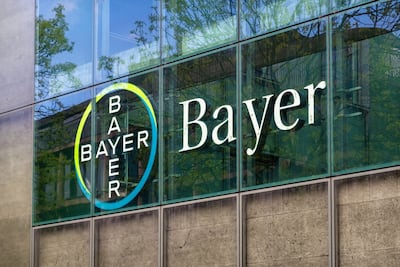Women's Health
Bayer has begun a Phase III trial evaluating its intrauterine device for non-atypical endometrial hyperplasia, a condition with no approved medical treatments.
Comes Days After PDUFA Pushback For GSK's Blenrep.
Lynkuet will compete with Astellas's Veozah/Veoza
Expert panel including Ashok Venkitaraman, director of the Cancer Science Institute of Singapore, discusses public health challenges and innovations to help address these. Long-acting drugs, intercepting cancer early and “design thinking” by ophthalmologists in India were among the talking points.
Adstiladrin sales hit €70m in first full year on the market
Deal Snapshot: Cosette will acquire struggling Mayne Pharma for about $430m, thereby augmenting its women’s health and dermatology portfolio and enhancing commercial capabilities.
Over 140 biopharma leaders share their views on developments to watch for in key therapeutic areas this year. Advances in multiple scientific fields are opening up new avenues for treatment.
Despite a big market opportunity with an underserved patient population, investment in the therapeutic area lags and investor perception is a pressure point.
Interim results from an international Phase II study with its prolactin inhibiting antibody have boosted HopeMed’s confidence in its first-line potential in the chronic disorder, the Chinese venture's CEO tells Scrip.
The Copenhagen-headquartered group is taking its antibody-drug conjugate rinatabart sesutecan into Phase III and chief medical officer Tahi Ahmadi tells Scrip that it has the potential to treat far more women than the only currently marketed FRα-targeting ADC, AbbVie's Elahere.
The US FDA updated labeling for Astellas’ drug for hot flashes after a postmarketing report of a single patient with signs and symptoms of liver injury taking the medicine.
CEO Bill Anderson would not be drawn on whether the drug, currently approved for chronic kidney disease associated with type 2 diabetes, will hit a previous forecast of €3bn peak sales, but expansion into heart failure may make that figure look conservative.
As sales of the Japanese drugmaker’s non-hormonal treatment for menopausal symptoms Veozah finally take off, the German major has filed its potential competitor, elinzanetant, with the US Food and Drug Administration.
While its European licensee is preparing for an imminent launch, Kissei has also been expanding its partnerships in Asia for female health product linzagolix. A new alliance is also being sought in the US to assist with a new trial and NDA refiling there.
The Japanese pharma’s new US commercial head Michael Petroutsas talked to Scrip about the launches of Veozah and Izervay.
Two top-50 Indian firms are speculated to be on the block with valuations expected to be richer than past multiples paid by buyers. A small, less known life sciences solutions provider is also keen to rope in a CDMO partner. Scrip speaks to a cross-section of experts on the action in deal street.
Bayer will submit its non-hormonal treatment for vasomotor symptoms associated with menopause for approvals this year, still eyeing €1bn-plus in peak sales despite a rival’s slow start.
The pharmaceutical division is expected to be the three-pillared German group's primary growth driver for the foreseeable future and the launch of new cardiovascular and woman's health products should help manage the loss of exclusivity on Bayer's biggest earner.
Organon's commercial director and lead for the South Asia region, Anjan Sen, discusses with Scrip the prospects of contraceptive Implanon NXT with its inclusion in India’s historic family planning program. The Merck spin-out is also on course to debut its Jada System this year, opening up new growth avenues as it disentangles and builds out operations in the region.
Multiple factors were behind Merck & Co’s rise to ace AstraZeneca and others to become the leading pharma multinational in the world’s second-largest pharma market in 2023, including partnerships and competition and a strong position in the growing HPV vaccine sector.




















